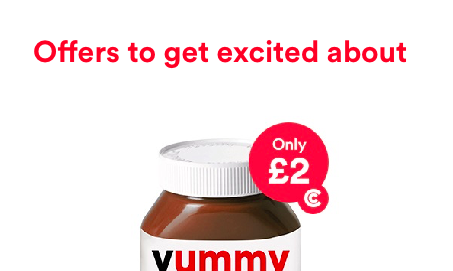Brands, be yourself
The other day I tweeted this Costcutter leaflet:
You want me to shop irritably? I don’t see what that will achieve pic.twitter.com/J4DxI1JTYe
— Tom Albrighton (@tomcopy) March 6, 2017
Behind my retweet-begging snark lay genuine confusion. What was the tagline trying to say? What is the ‘way you live’ – the central brand value that’s been riskily left implicit?
As @LarnerC observed, at first glance it would be low price. On that reading, the line means ‘You live cheaply, so shop cheaply’ – a tautology at best, an insult at worst.
I wondered whether readers were just supposed to fill in their own character trait – something more positive than mine, like freedom – and attribute it to the brand.
A visit to the Costcutter site reveals that the missing value is actually spontaneity, as reflected in the phrase ‘spontaneous everyday’ (with echoes of Ikea’s ‘wonderful everyday’):
OK, I see the strategy. Make the shop a destination; make shopping an experience; stop local customers deserting you once they’ve got a bit more cash, or bought a car. But is spontaneity really the one thing you want to talk about when your brand name is ‘Costcutter’?
For me, this is an example of ‘value inflation’ – chasing values too far upstream towards the reader’s inner emotional life, and abandoning tangible benefits.
It’s the approach that brought us ‘hashtaglines’ like LG’s ‘Life’s Good’, Coke’s ‘Taste the Feeling’ and Pizza Hut’s ‘Taste Freedom’ – any of which Costcutter could plausibly adopt, if it went one step further and dropped the word ‘shop’.
But I don't want to taste freedom. I want to taste cheese pic.twitter.com/dwnOUj0Gwc
— Tom Albrighton (@tomcopy) March 7, 2017
Value inflation is a symptom of a brand that’s fallen out of love with itself. It’s got bored with its own identity and yearns to be something else. But why would Costcutter want to do that?
Owning a simple, powerful brand value is hard work. Asda has spent decades and millions of pounds to link its name with savings.
With ‘Costcutter’, half the appeal is right there in one crunchy, no-nonsense, pleasingly alliterative brand name. The main idea is crystal clear and that budget-conscious local shopper is yours to lose. OK, the experience has to make good on the price promise – but with the right offers, it surely will.
‘Costcutter’ has the laser-focused commercial logic of chip shops called ‘Mr Chips’, or Norwich window cleaners called ‘Norwich window cleaners’ so they come top of page 1 for ‘Norwich window cleaners’. And that simplicity, that purity, is absolutely nothing to be ashamed of.
For me, it’s telling that the Costcutter home page cuts right to the chase:
‘Offers to get excited about.’ A great line that goes right to the heart of the brand’s appeal. So why not make something like that the tagline? (‘Get more out of life’, if you want something a little bit fluffy.)
I guess you could argue that all brands are just semiotic hooks you can hang any old meaning on. And that meaning can change. But there are limits – and maybe the literal meaning of a brand name is one such limit.
‘I check my look in the mirror,’ sang Springsteen, ‘I wanna change my clothes, my hair, my face.’ Well, if the Boss feels that way, you’d better believe we’re all gonna feel that way – from time to time, anyways. But at the end of the day, we all have live with the faces we were born with. It’s true for you and me, it’s true for Bruce and it’s true for brands.
Tags: Aldi, Asda, Bruce Springsteen, Coca-Cola, Costcutter, Ikea, LG, Lidl, Mr Chips, Nick Asbury, Pizza Hut

